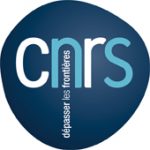2007 – 2008
The Aliento Project was created in 2007 at the time of the establishment of the areas of research of the MSH Lorraine (Lorraine Institute for Social Sciences and Humanities) although the project was not really part of the MSH until April 2008.
At that point the project was financed by the regional authority as part of the CPER and by the academic institutions to which it is associated (Inalco, University of Lorraine, ATILF…).
This project is the result of a close collaboration between Marie-Christine Bornes Varolhttp://aliento.msh-lorraine.fr/chercheurs/fiche-personnelle.html?tx_wecstaffdirectory_pi1[curstaff]=8&cHash=4cb43b11bce803b157cd142c3d5892b6, (professor of Judeo-Spanish at the Department of Hebraic and Jewish Studies of the Inalco, a member of the research team CERMOM and the author of several works on proverbs and their intercultural transmission) and Marie-Sol Ortola (professor at the Department of Iberian and Latin-American Studies at the University of Lorraine, a member of the research team ROMANIA at the moment of the creation of the project and the author of works on the 16th century Spanish prose narrative).
The idea of a research project on proverbs and sapiential statements developed gradually in the 1990s through discussions between the two coordinators. These discussions concerned mainly their respective research work on the 16th century anonymous dialogue Viaje de Turquía and on proverbs and their adaptations to specific situations in the Judeo-Spanish community in Istanbul. The collaboration with Jean-Daniel Gronoff (former research engineer in corpus analysis system development for history, sociology, linguistics and literature at the EHESS) has given the project a new dimension by directing it towards the digital humanities.
The interdisciplinary collaboration between these three researchers and a number of linguists and specialists in texts in various languages combines research on texts and textual linguistics with paremiology, phraseology, corpus semantics and software development. The two coordinators organised an international network of collaborators and J. D. Gronoff applied the matching and crossing software for the management of multilingual corpora to a sample from our reference corpus made up of 5 texts (one in Hebrew, one in Latin, one in Arabic and two in Spanish).
2008 – 2013
The results were first presented at a conference held by the Foundation of the Three Cultures in Seville in 2008 and then at the 1st Aliento International Conference in March 2009. The software research project, in its turn, was presented at the Informatik Conference in Leipzig in 2010, at the Humanidades en la red Conference in Barcelona in 2011 and at IR-CORPUS in Paris in 2012. As far as phraseology is concerned, the results were presented in a special session at the EUROPHRAS Conference in Granada in 2010.
Close links have been established and collaboration and exchange have been developed with similar projects such as SAWS, Paris 2010, Vienne 2011; CASG, Paris 2010, Halle 2010; HiFOS, Trier 2011, Nancy 2012, Trier 2012; DicAuPro, Paris 2011, Louvain 2012. Besides, the tagging models necessary for the crossing of texts has been completed and has been presented in international conferences and in the 2010 and 2011 Aliento workshops. Unable to continue the research according to the guidelines suggested by Jean-Daniel Gronoff because of lack of financing, research has turned to the use of the editor XML Oxygen. The Atilf, which had already been involved in the second area of research of the MSH Lorraine (axe 2), has become a close partner of the research project.
2014-2017
The cooperation between the Atilf and the Parisian and Lorraine research teams together with the international network of collaborators has made possible to apply to the Agence Nationale de la Recherche (French National Agency for Research) for financing the project in 2013.





